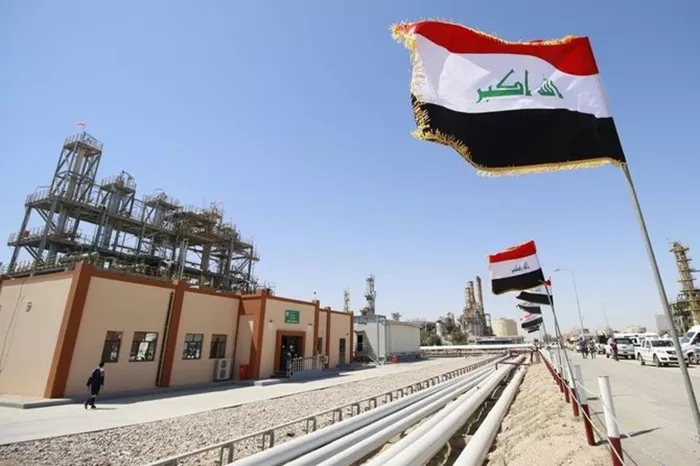Iraq’s Deputy Petroleum Minister, Hamid Younes al-Zobai, recently visited Washington, D.C., to advocate for increased financial investment from U.S. energy firms. His mission centered on promoting the notion that enhanced collaboration with Western companies would facilitate a reduction in gas flaring and an increase in Iraq’s gas production capabilities. This annual appeal, which has echoed through the corridors of power for over two decades, carries an implicit warning: without substantial financial support, Iraq may deepen its already significant ties with Iran and China, both critical players in its energy landscape.
Iraq faces pressing motivations to curtail its gas flaring and boost production. In 2017, the country committed to the ‘Zero Routine Flaring Initiative,’ aiming to end the practice of burning off associated gas during oil extraction. At that time, Iraq ranked second globally in gas flaring, wasting 17.8 billion cubic meters (Bcm) annually. While Iraq’s flaring decreased slightly in 2023 to 17.7 Bcm, its position in global rankings fell to third place, overtaken by Iran. This ongoing waste of resources results in significant financial repercussions, as Iraq must import gas from Iran to meet its energy needs, draining its treasury.
Additionally, the reliance on Iranian gas has strained U.S.-Iraq relations, leading to the withholding of financial support and the cancellation of numerous Western projects in the country. The lack of sufficient domestic power generation has resulted in frequent blackouts, igniting public protests and unrest. Moreover, increasing gas production could enable Iraq to finally implement long-stalled petrochemical projects, potentially generating billions in revenue.
Iraq possesses substantial gas reserves that could facilitate these changes. Official estimates place Iraq’s proven reserves of conventional natural gas at 3.5 trillion cubic meters (Tcm), accounting for approximately 1.5% of the global total, ranking Iraq 12th among reserve holders. Notably, around 75% of these reserves comprise associated gas produced alongside oil extraction. However, the Iraqi oil and gas authorities have not updated their figures since 2010, despite advancements in oil reserves. The International Energy Agency (IEA) suggests that Iraq’s ultimately recoverable gas resources may be significantly higher than current estimates, reaching up to 8 Tcm.
Despite these abundant resources, Iraq has not made meaningful progress in reducing gas flaring or increasing production. The country continues to rely on annual gas import agreements with Iran for approximately 40% of its total gas needs, with a recent five-year deal sparking frustration in Washington. Simultaneously, Iraq has strengthened its relationship with China, allowing Beijing to extend its influence over Iraq’s substantial oil and gas resources through various cooperation agreements.
The dynamics of Iraq’s partnership with China have shifted post-COVID-19, with funding for Belt and Road Initiative projects diminishing. Although China continues to procure oil from Iraq at discounted rates, investments in BRI projects have decreased, prompting Iraqi officials to seek renewed commitments from U.S. partners.
The U.S. has a strategic interest in Iraq, but its approach to engagement remains cautious. Senior U.S. officials emphasized that any potential cooperation in the oil and gas sector hinges on meeting specific conditions. A senior figure involved in U.S. sanctions related to Iraqi and Iranian issues stated that Washington employs a risk/reward matrix based on three key factors: cohesion, security, and streamlining.
Cohesion: Ensuring the Iraqi government can uphold its commitments throughout the duration of any project, regardless of political changes.
Security: Guaranteeing the safety of U.S. personnel and ensuring transparent and accountable business practices in all agreements.
Streamlining: Maintaining efficient decision-making and implementation processes throughout project lifecycles.
Consequently, any significant agreements with U.S. oil and gas firms will undergo thorough review by U.S. legal and accounting professionals, with ongoing security assessments from U.S. organizations.
As Iraq navigates its energy challenges and seeks greater investment, the interplay between U.S., Iranian, and Chinese interests will shape its future in the global energy market.
Related topic:

